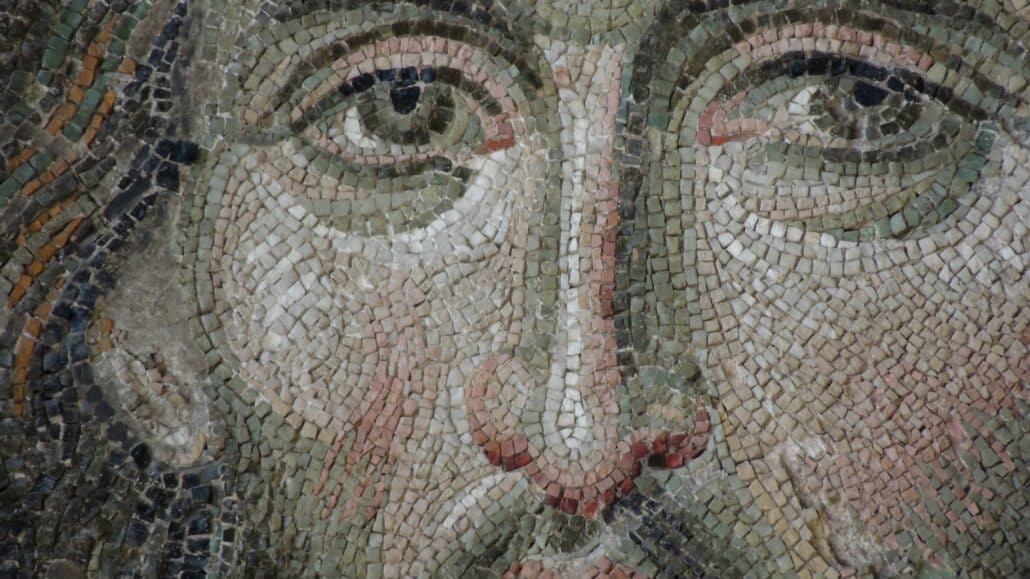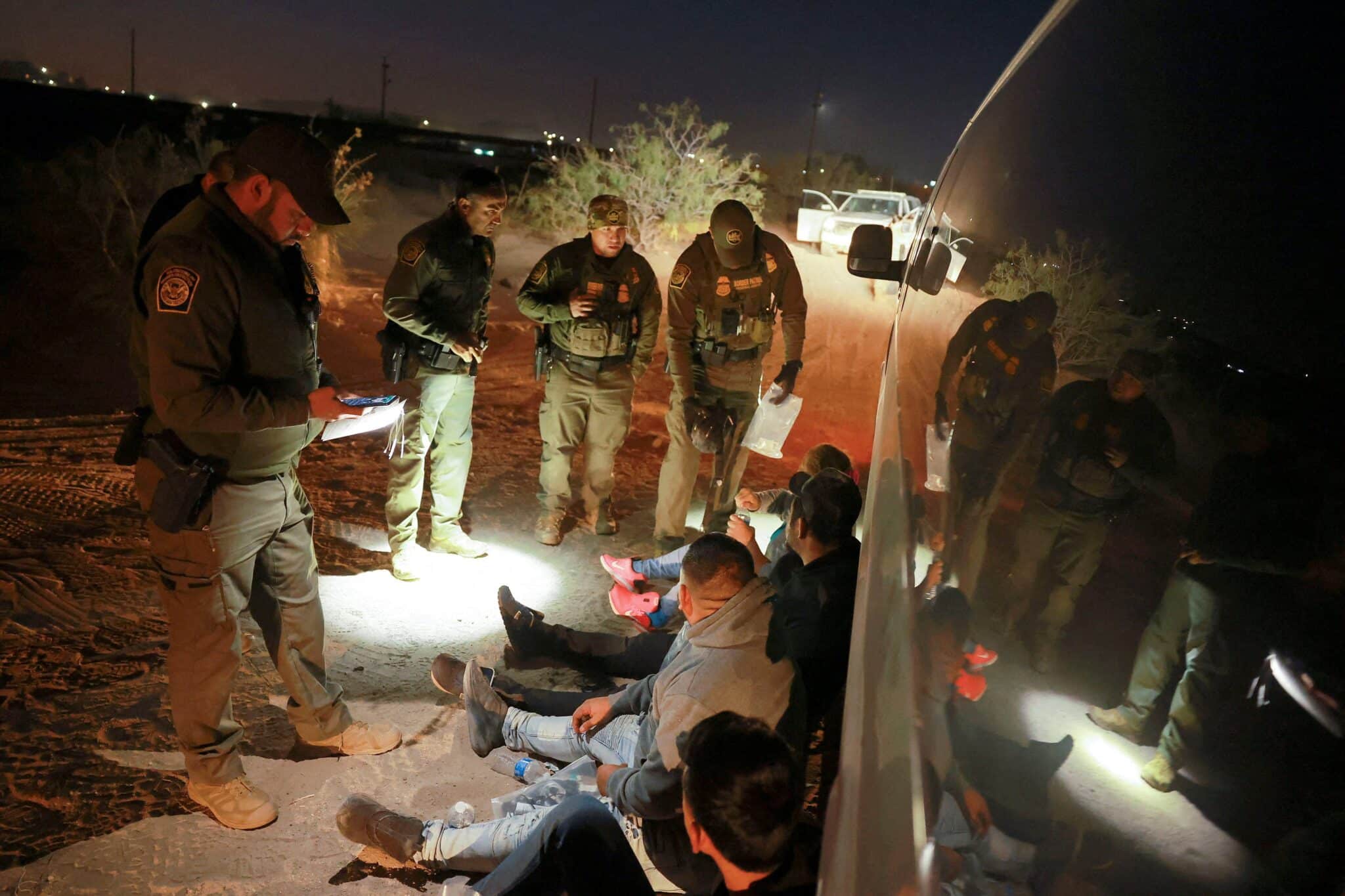On our spiritual journeys, we each must decide how we relate to sacred writings. For instance, do we view the Bible as only a historical document or as something dynamic that functions more as an invitation rather than an operations manual? If we choose to view Scripture as an invitation, that opens a door to the possibility that whatever Jesus says in Scripture is directed not only to the disciples and the other people of his time but also to each of us. That includes his questions.
In Matthew 16:13–20, when Jesus asks his disciples what people are saying about who he is, they give him several answers. Then he looks at Peter and asks, “Who do you say that I am?” Peter answers: “You are the Messiah, the Son of the living God,” a response that pleases Jesus.
Was that a pop quiz for which Peter, fortunately, gave the correct answer? That is one way to view it. But suppose I view it as an invitation. Suppose I consider that the question is directed not only to Peter but to me, not as a quiz but as an invitation to explore exactly who and what Jesus is in my life. That is the invitation extended to each of us.
There are names for Jesus that others have said I should believe, such as the Messiah, savior, redeemer, and Son of God. Scripture scholar Marcus Borg refers to this as “secondhand religion,” i.e., “a way of being religious based on believing what one has heard from others.”
His invitation calls me to reflection what those correct or secondhand answers actually mean to me. Looking honestly at those terms is both helpful and uncomfortable. For example, I become aware that I don’t have a strong sense of what it means when I hear things such as, “Jesus died for your sins,” or when I am asked, “Have you accepted Jesus as your personal savior?”
However, when I remember waking up on June 2, 1983, with a strong sense that it was time for me to confront the addiction in my life, and when I think of the many times since then that I turned to Jesus for help in getting through the next day or even the next minute without picking up a drink, I find that I have a strong and enduring sense of being saved and redeemed.
Considering the answer that Jesus is the Son of God also makes me very uneasy. If he is the Son of God, then that means everything he said came from God. That includes his call to love my enemy, to embrace the poor and marginalized, and to be very careful about my attachment to stuff.
In response to his invitation, then, I came up with a list of other names for Jesus that comprise my own answer to his question: prince of peace, rebel, teacher, storyteller, healer, the way, criminal, and friend to sinners. These titles have great meaning to me, and I want to share them with you.
The Prince of Peace. Jesus clearly is the prince of peace. Calling him this, however, is not simply saying something warm and fuzzy. If I choose to call him this, then I am embracing all he stands for regarding peace. Jesus clearly stood for nonviolence. He challenges me several times to love my enemy, remembering that my enemy may indeed be a combatant in a foreign land, but may also be my annoying neighbor down the street. Further, as prince of peace, he challenges and invites me to be a peace-maker, to not simply keep my mouth shut and stay out of trouble but to actively foster peace in all my daily dealings.
The Rebel. If I call Jesus the rebel, as Jackson Browne does in his great song “The Rebel Jesus,” then I am accepting that he was outspoken when he saw injustice. In his book What Paul Meant, Garry Wills suggests Jesus didn’t come to create a new Church but to perfect his own Judaism. Thus, many of his most critical words were leveled at synagogue authorities. He was trying to reform the Judaism of his day. As such, he stirred up trouble and was punished for it. He was condemned for challenging the establishment.
Giving my Jesus the title of rebel means that I am embracing his challenge to speak out, particularly within my own Catholic Church. If I believe my Church, be it local or universal, is straying from Jesus’ message, then I am called to confront and perhaps to suffer attack and judgment as a result. As Jackson Browne sings, “But if any one of us should interfere/In the business of why there are poor/ They get the same as the rebel Jesus.”
The Teacher. The Jesus of my understanding is clearly the teacher. But what is it that he teaches me? By word and example, he teaches me how to treat others. This includes not only kindness and support, but also by absence of judgment. When I observe how Jesus lived his life, I notice that he had few attachments. I see that he took time for himself, trying to find a balance between service and self-care. I also observe that he had a temper and was not afraid to confront. As my teacher, Jesus challenges me to examine how I treat myself. He openly challenges me to love myself as my neighbor, a task with which many of us struggle.
The Storyteller. Jesus is also the storyteller. Some of his most memorable teachings come in the form of stories, inviting us to immerse ourselves in them, identifying first with this character, and then that one. He challenges me to find within myself not only the prodigal son, but also the prodigal son’s resentful brother, to discover in myself both the good Samaritan and the others who pass by him.
He helps me with stories that include metaphors for faith. Thus, my efforts to comprehend the elusive concept of faith are helped with images such as the mustard seed or new wine at a wedding feast.
The Healer. The Gospels include many portrayals of Jesus as the healer. But in answer to his question, do I say Jesus is the healer of me? I clearly credit Jesus with redeeming me from addiction. But I have experienced Jesus as healer in other ways.
Psychiatrist Carl Jung gave us the gift of creative imagination to tease out richness and guidance from our dreams. Christian writers such as the Linn brothers and Sheila Fabricant expanded this technique into the realm of spiritual healing. Thus, we can enter into a painful situation through our imagination, then invite Jesus to come into that scene for healing.
At one point, I found myself bothered by a series of dreams I’d had of being in prison. I was unable to make sense of these dreams and so imagined myself in a cell and invited Jesus to enter the scene. As he stood outside my cell, I asked, “Please, Jesus, help me get out of here.” Jesus chuckled and said, “The door’s not locked.” Indeed, when I pushed the door, it swung open. I asked Jesus what this prison image was all about. He said, “Your prison is your resentments,” and then mentioned one person in particular.vThis healing experience was only a beginning. I had a lot of work to do. That is often how I experience Jesus as healer. He points the way, but doesn’t necessarily do all the work.
I also learn an important lesson about healing from the recounting of Jesus healing the 10 lepers. Only one leper returns to thank Jesus. He wonders where the other nine are, not so much because he wants to bask in their thanks but because of the important impact of gratitude on continued healing. Thus, the 10th leper reminds me not only to be grateful for my healing but also to continue in gratitude as a way of enriching and continuing the healing.
The Way. Jesus describes himself as the way. For me, this is reminiscent of the Tao of Chinese philosophy, also translated as “the way.” The Tao is presented as a philosophy to help one negotiate life’s journey. Among other things, the Tao reminds us of the interconnection of opposites. Thus, light has no meaning without dark. When Jesus says he is the way, he is telling us not only to follow his guidance, but also to approach life as he did. Therefore, my answer to his question “Who do you say that I am?” becomes even more important since it will outline how Jesus is the way for me.
The Criminal. It might strike you as strange, even irreverent, that I have listed criminal as part of my answer to Jesus’ question. But was he not labeled a criminal? Was he not tried and convicted? And, most important, was he not executed between two other criminals?
The part of his message that seems to get lost is that he came for the marginalized. He was condemned for dining with sinners. The hero of his good Samaritan story is someone treated as a foreigner. Remember his great teaching on the final judgment? He counts himself among the hungry, the thirsty, the stranger, the naked, the sick, and the imprisoned, and points out to each of us that when we refuse to help these marginalized people, we refuse to help him!
In naming Jesus as criminal, I also note that, in our day, many of our greatest saints and prophets spent time in jail: Dorothy Day, Nelson Mandela, and Dietrich Bonhoeffer. In that regard, Daniel Berrigan’s observation on prison garb strikes me as rather Christlike: “For the first time, I put on the prison blue jeans and denim shirt, the clerical attire I highly recommend for a new church.”
The Friend to Sinners. Naming Jesus as the friend to sinners goes beyond his commitment to the marginalized. For me, it offers hope. The Catholicism of my youth paid a lot of attention to sin, such that, when I did sin, I felt I had lost Jesus’ friendship. Jesus didn’t excuse sin, but he clearly loved the sinner. As I bump along on my own spiritual path, that image of Jesus as a friend to sinners helps me persist in my effort to do better and to see that he is out of my life only if I banish him.
Your Name for Jesus
There are other names for Jesus: the good shepherd, the bread of life, the king of glory. These are just a few of them. Perhaps these names have a greater meaning to you. Just keep in mind that, for you, the only correct answer to his question is your personal one. Who do you say that he is?
This first appeared in St. Anthony Messenger.









7 thoughts on “Who Do You Say That I Am? A Meditation on Jesus”
For me, Jesus is God, the Mesiah, and all that. Jesus is all I know, for without Jesus to whom shall I go? Lately, I’ve been trying to see Jesus more as a friend, I guess. But then, so are my parents who’ve moved on. We all continue to talk, if nothing more than in memory.
As far as the video above, that’s the best talk I’ve ever heard that Franciscan give. I thought it very insightful.
as someone above said, ‘To whom shall we go?” He is the great patient & loving Redeemer.
Jesus did came to start His Own Church for He Said upon this rock I shall build ‘My ‘Church
He is “my Jesus”, my companion, my friend, 24/7.
Thank you for sharing your thoughts.
Sal G
HE is my everything. My comfort. My life. My greatest love. Nothing and no one is more important than my only LORD JESUS.
Grace… Jesus is Grace… He is the Greatest Giver, Faithful Shepherd, Brave in Perfect Love, Ever Patient…
I really enjoyed reading your blog. I want to go deeper in my faith and your article is an invitation for me to answer who Jesus is in my life! I know He is closer to me than I am to him. I want to do all I can to cultivate our friendship and be as close as He will allow me to be. Tina Marie